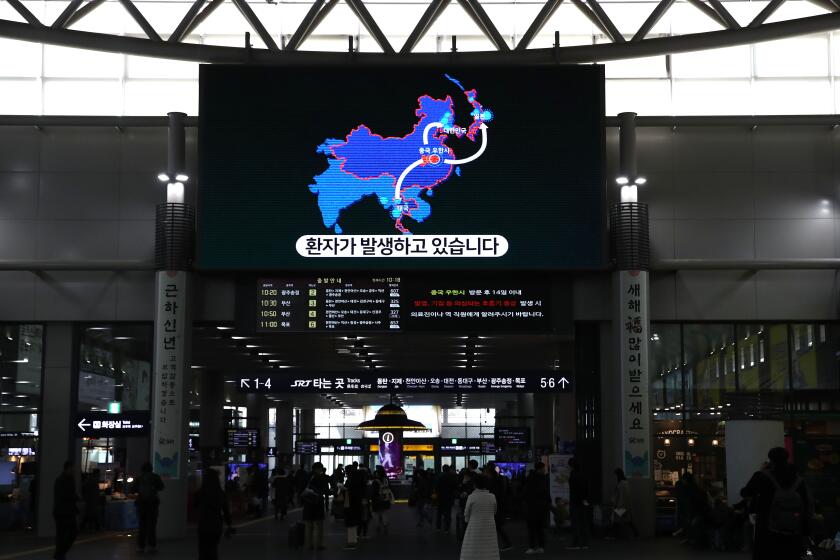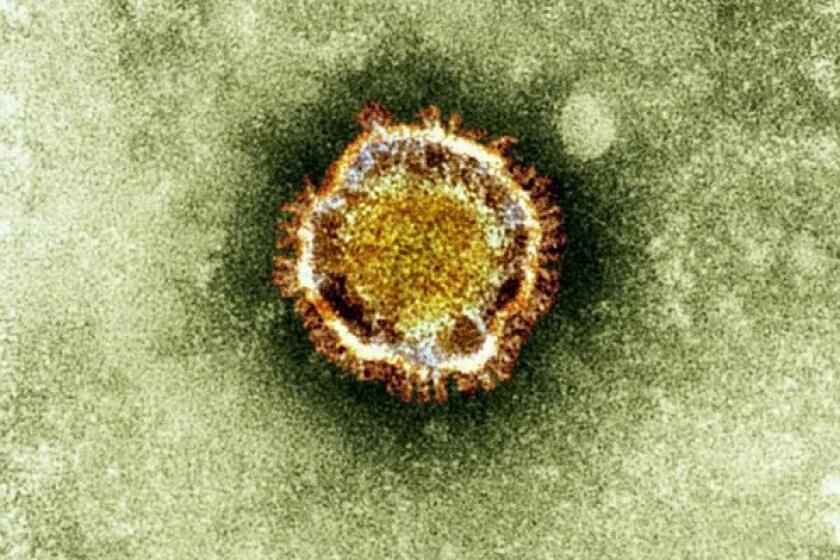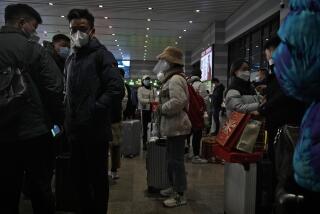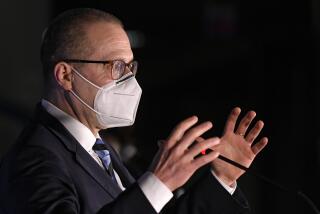As coronavirus outbreak worsens, China agrees to accept help from WHO
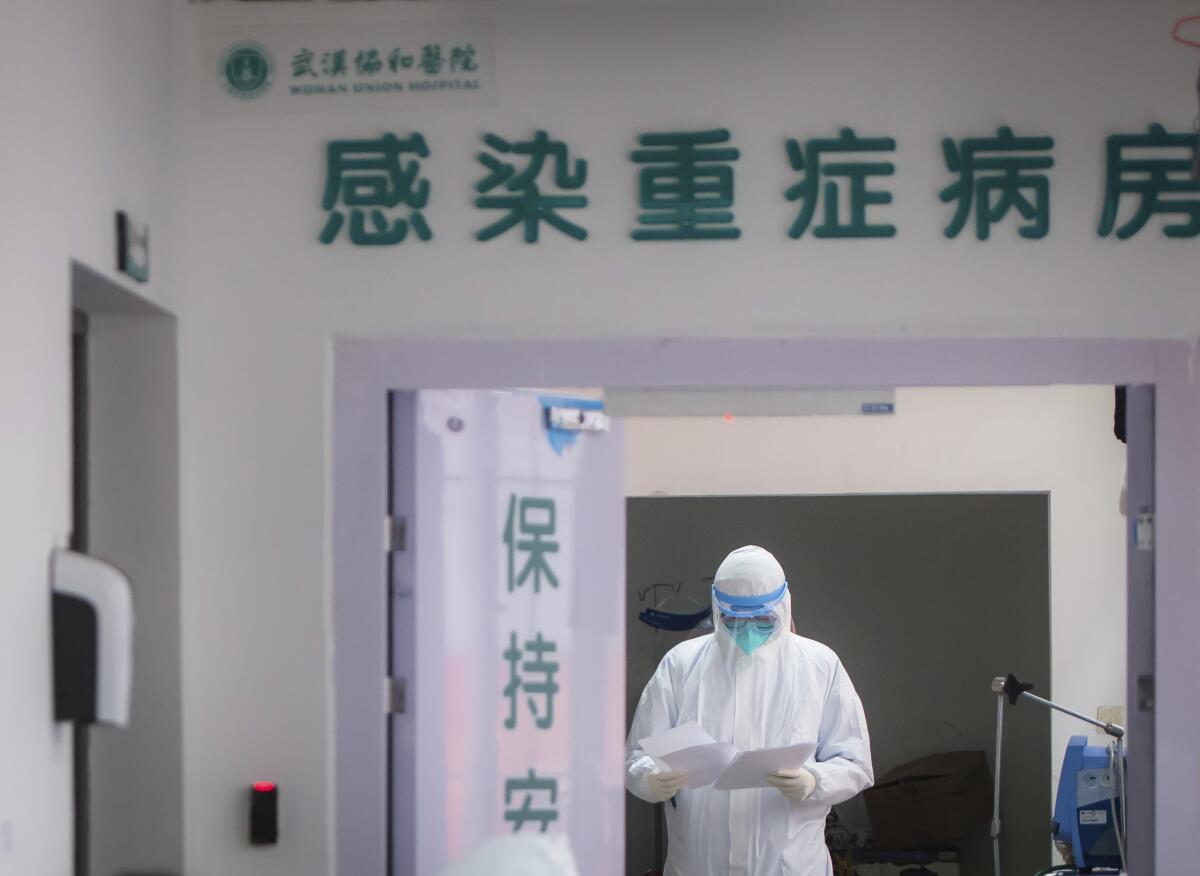
Chinese authorities agreed Tuesday to allow the World Health Organization to send international experts to China to assist with research and containment of the worsening coronavirus outbreak.
Beijing had repeatedly declined offers of assistance from outside experts, including scientists from the U.S. Centers for Disease Control and Prevention, said Alex Azar, secretary of the U.S. Department of Health and Human Services.
Informed that the WHO would soon dispatch a team to China, Azar said he was “delighted” and assumed that CDC scientists would be included.
Azar had told reporters that three overtures to send CDC scientists to China had thus far gone unaccepted. The first offer was made on Jan. 6, he said.
WHO Director-General Tedros Adhanom Ghebreyesus met with Chinese President Xi Jinping on Tuesday to discuss plans to contain the novel coronavirus. The two agreed that international experts would visit China to help investigate the situation and enhance the global response.
“WHO is working closely with the government on measures to understand the virus and limit transmission,” Tedros said.
He praised Chinese officials for sharing data about the virus, including its genetic sequence. “We appreciate the seriousness with which China is taking this outbreak,” he said.
If the coronavirus outbreak in China were a Hollywood movie, now would be time to panic. But in real life, most Americans have no need, experts say.
Azar described China’s response as “completely different” than the obfuscation that accompanied the 2003 outbreak of severe acute respiratory syndrome, which sickened more than 8,000 people in 29 countries and resulted in 774 deaths. Still, he encouraged Chinese officials to be more open about the status of the growing outbreak.
“We are urging China: More cooperation and transparency are the most important steps you can take toward a more effective response,” Azar said.
Nearly 5,000 people around the world have been infected with the virus, and 106 people have died, according to experts tracking the outbreak at Johns Hopkins University.
Without more information, the CDC can’t confirm the Chinese government’s assessment that people who are infected with the coronavirus but show no outward symptoms are able to spread it to others, Azar said. All the data the U.S. has are based on U.S. patients who show symptoms, he said.
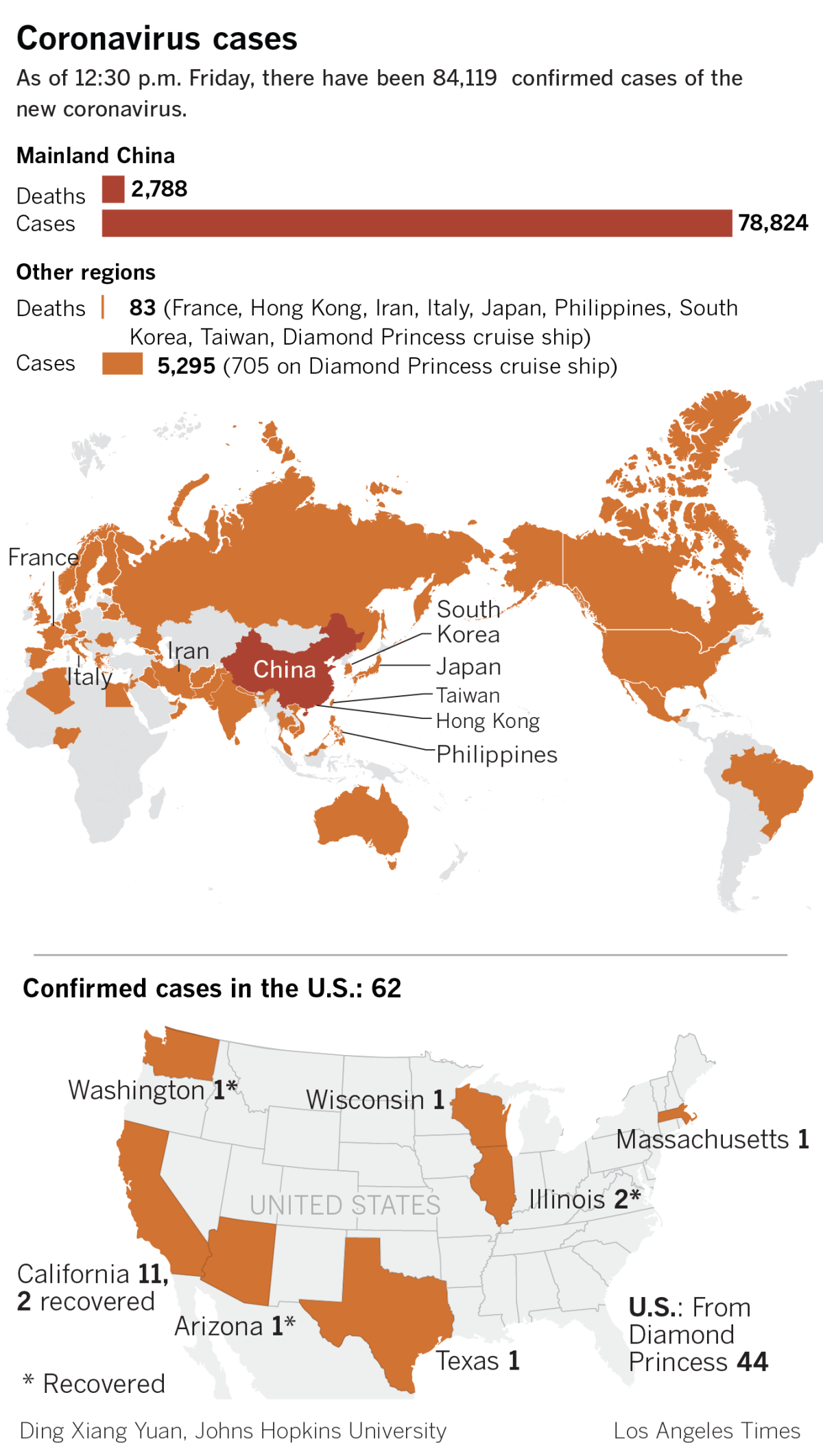
China’s decision to welcome international help came hours after Germany confirmed its first case of a patient with the rapidly spreading virus.
A 33-year-old man from the Starnberg area south of Munich is believed to have been infected last week by a female Chinese colleague who visited his workplace, German authorities said Tuesday.
The woman did not show any symptoms of infection or begin feeling ill until after she flew home to Shanghai on Thursday. Before she traveled to Germany, she had been visited by her parents, who live in the Wuhan area, where the outbreak began.
The German man began experiencing bronchitis-like symptoms over the weekend. He felt well enough to come to work on Monday, but notified his company about his condition after hearing that his colleague had tested positive for the virus.
The man is now in good condition at a Munich hospital, where he is being monitored in isolation as a precaution, officials said.
Any time a “novel” virus appears on the scene, things immediately become much more complicated. That’s certainly the case with the coronavirus from China.
Azar said efforts are underway across the U.S. government to prepare for the possibility of a worsening situation. Emergency response officials are taking inventory of the country’s medical supply stockpile, and scientists at the National Institutes of Health are conducting longer-term research into vaccines and treatment options for the virus.
In addition, the State Department is coordinating repatriation of Americans in China, and public health officials will screen airline passengers for coronavirus symptoms at 20 U.S. airports.
Azar urged citizens everywhere to commit to thorough hand-washing and to stay home when they are sick. There’s no need to hoard N95 masks at this point, he said, though pharmacies have reported selling out of them.
“This is a very fast-moving, constantly changing situation,” Azar said. “Americans should know that this is a potentially very serious public health threat, but, at this point, Americans should not worry for their own safety.”
The Associated Press was used in compiling this report.

